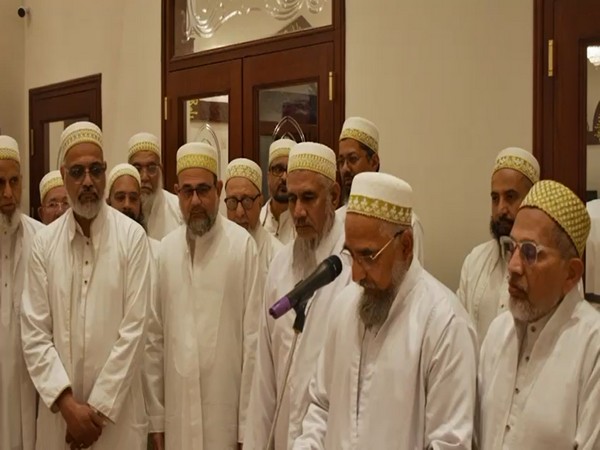'It was govt failure': Hazaras protest against targeted killing of 11 coal miners in Balochistan
Jan 04, 2021

Balochistan [Pakistan], January 4 : Pakistan ethnic Hazara community protested against the killing of coal miners in the targeted attack in Balochistan and refused to bury their remains until the government meets their demands.
Hundreds of protestors assembled on a highway in the western part of the provincial capital of Quetta on Monday to protest against the killing of the miners a day earlier. The coffins of their relatives laid out on the ground before them, Al Jazeera reported.
"He was the son of my aunt, what was his crime? Someone tell me his crime, for God's sake, someone just tell me what fault he committed?" cried out Masooma Bibi, whose brother and cousin were killed in the attack.
Eleven coal miners, all members of the minority Hazara Shia community, were kidnapped and reportedly killed in Machh town in here on Sunday.
The men were abducted at gunpoint and then taken to a secluded area in the nearby hills where they were attacked, according to various accounts. It is believed they were kidnapped from their hostel located near a mine where they worked.
Islamic State has claimed the responsibility of the attack.
The protesters have demanded that the miners' killers be brought to justice and that the government form an independent judicial commission to investigate the continuing attacks against Hazaras.
Ethnic Hazaras have been long persecuted in Pakistan for their faith, facing targeted attacks and large scale bombing that has killed hundreds in the last two decades.
"For 22 years, [our demands] are the same: that our killers are arrested, that their facilitators are arrested and those who lead them be arrested. It is not so difficult to understand this," says Saeed Muhammad Raza, a local leader of the Shia Muslim Majlis Wahdat-e-Muslimeen (MWM) political party.
"If the rulers do not understand this, then I do not know what their compulsions are that they cannot act against those who lead these terrorists, nor can they act against [the attackers] themselves," Raza added.
Five of Abdul Manan's relatives were among those killed on Sunday.
"This is the government's failure, isn't it? So we ask the current government that the killers must be immediately apprehended and punished," he told Al Jazeera at the protest site.
"They are poor people [and] no one among those who survive them [could support the family]," he added
Manan said the protesters were willing to brave the harsh winter conditions, with temperatures falling below freezing overnight, for as long as it takes.
"Our demand is that if you arrest the killers then we will, God willing, bury the bodies. But until the killers are apprehended, we will sit here in protest," Manan added.
Pakistan is a well-known perpetrator of such human rights violations. On several occasions, it has promised to safeguard the interest of minority communities in the nation. However, continuing attacks on minorities narrate a different story.
Islamabad has been discriminating against its religious minorities. This is manifested in various forms of targeted violence, mass murders, extrajudicial killings, abduction, rapes, forced conversion to Islam, etc., making Pakistani Hindus, Christians, Sikhs, Ahmadiyyas, and Shias the most persecuted minorities in the region.
In 2020, the United States had voiced concern over the targeted killing in Pakistan of Shia Muslims, including ethnic Hazaras, who are largely Shia, and Ahmadi Muslims in attacks believed to be driven by faith.
The US '2019 International Religious Freedom Report' that documents major instances of the violation of religious freedom across the world, released by Secretary of State Mike Pompeo at the State Department had said human rights activists reported numerous instances of societal violence related to allegations of blasphemy; of efforts by individuals to coerce religious minorities to convert to Islam; and of societal harassment, discrimination, and threats of violence directed at members of religious minority communities."
There also continued to be reports of attacks on holy places, cemeteries, and religious symbols of Hindu, Christian, and Ahmadiyya minorities," the report added.




















